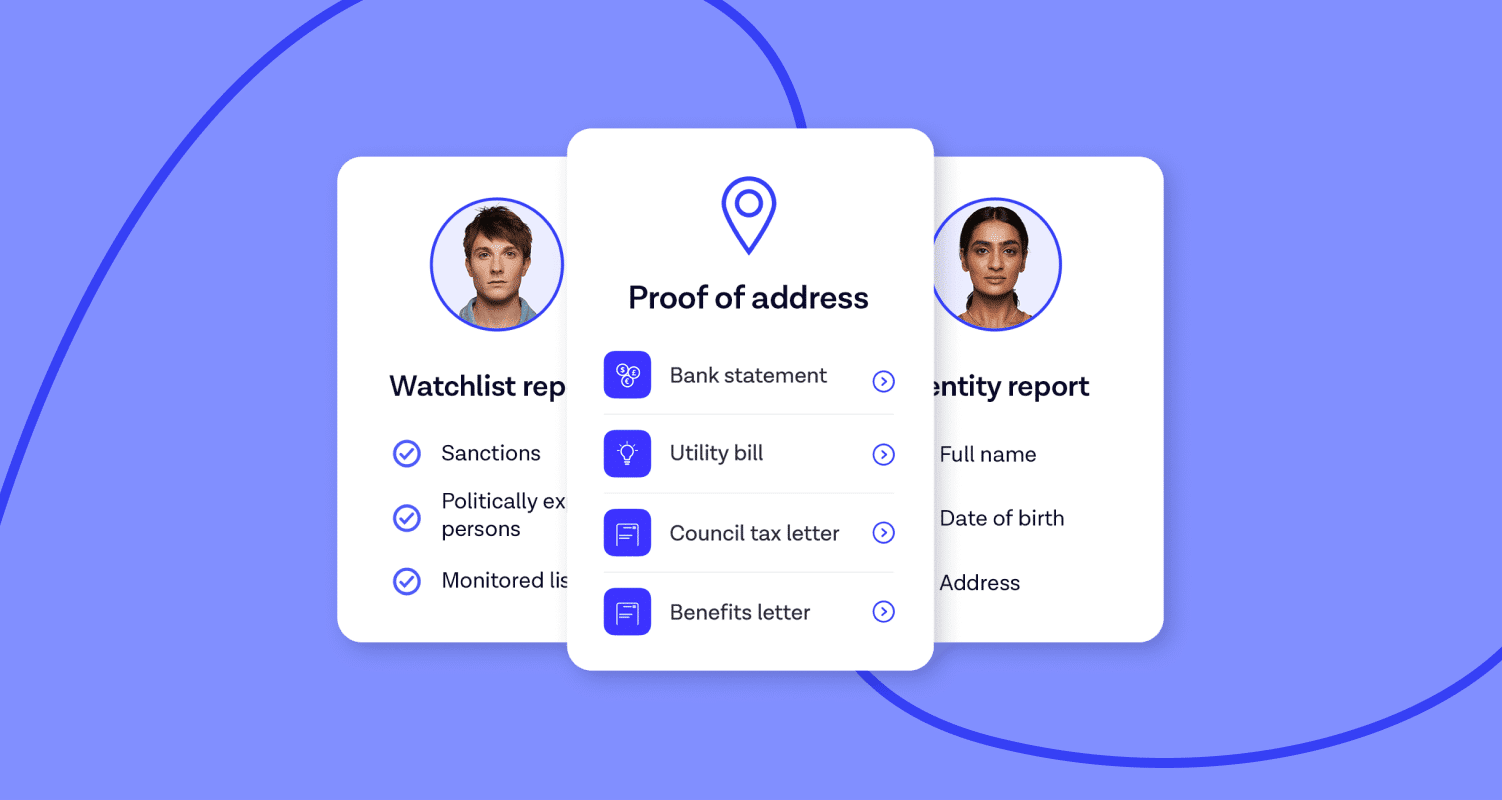
Proof of address verification is a basic requirement of know your customer (KYC) regulations. It falls under a businesses’ wider anti-money laundering (AML) program to help increase security, and prevent financial crime and fraud.
In this article we run through some of the questions you as an individual might have about proof of address, including how to get it and what counts as proof of address.
Why do you need to provide proof of address?
To comply with KYC/AML compliance, regulated businesses need to perform customer due diligence on anyone they do business with. This includes identity verification, and more often than not as part of that verification process, proof of address.
Proof of address does what it says on the tin. Businesses simply need proof of residence for security purposes — to ensure that you aren’t lying about where you live — and to help prevent things like identity fraud.
Proof of address examples
Now we know what proof of address is, when will you need to do it? There are several circumstances where you might be asked to provide proof of address, but the most common are related to financial services activities, for example:
- Opening a bank account
- Credit application
- Opening an investment/trading account
- Making a large payment/transaction
Other instances when you might need to submit proof of address include: gaming or gambling, setting up/applying for insurance, or signing a contract with a new employer.
How to get proof of address
To get proof of address, you’ll need to be able to prove you’re living at a permanent residence and have official correspondence (proof of address documents) that include your name and address.
You then simply submit this document (or documents) that verify where you live to the business requesting proof of address. These documents are typically bank statements or utility bills. A full list of the types of documents businesses generally accept, and what counts as proof of address, are outlined in the two sections below.
The business will then inspect the document to check that it is genuine, valid, and contains the necessary information.
What counts as proof of address?
Typically, to verify proof of address you’ll need to provide 1-2 documents that include your name and address.
What counts as proof of address can differ depending on who you’re dealing with. For example, some businesses will only accept certain types of documents as proof of address. They will also likely only accept documents from within a certain time frame (for example a document issued in the last six months). Each business will have their own list of acceptable documents and criteria, so it’s worth checking this before you submit your proof of address.
Depending on which country you’re in can also affect what counts as a valid proof of address. For example, in the UK you can’t use the same document for proof of identity and proof of address. Often, you’ll be asked to provide two types of documents from two separate lists to meet PoA requirements.
On the whole however, these are the things to keep in mind when providing proof of address:
- Make sure the document shows your full name and address
- Make sure the document is recent and not expired
- Make sure the document meets the specific requirements of the business you’re dealing with
Proof of address documents
The following list contains some of the most common documents businesses accept for proof of address:
- Bank statement
- Credit card statement
- Building society or credit union statement
- Utility bill (eg. gas, electricity, water, broadband, landline)
- Benefits Letter (e.g. Job seeker allowance, house benefits, tax credits)
- Mortgage statement
- Tenancy agreement or accommodation certificate
- Mobile phone bill
- General letter from financial institution or utility company
- Insurance or brokerage statement
- Pension statement or letter
- Property/council tax statement or letter
- Identity document with address
- Address certificate
In most cases, bank/credit card statements and utility bills are only valid if they are from the last 3-6 months. Other types of proof of address documents (such as council tax bills or lease agreements) generally have to be from within the last 12 months.
Driver's licenses, ID cards, and passports are generally not accepted as proof of address on their own, but you might be asked to provide them alongside proof of address.
Proof of address for work
It’s also fairly common that your employer will ask you for proof of address when you start a new job. This is to prove your right to work in that country.
Proof of address for work is very similar to proof of address in any other circumstance. You will just need to submit 1-2 documents that verify your address, and follow any other specific instructions from your employer.
Onfido’s proof of address solution
Onfido’s proof of address solution allows customers to submit proof of address documents online via their mobile, desktop or a combination of both. This makes it easy for customers, but also for business to manage the results on the backend. Our AI analyzes the document to check it’s valid and genuine, and returns results in the Onfido dashboard.
See how Onfido supports businesses with their KYC and AML compliance requirements, including identity verification, proof of address, database checks and more.






